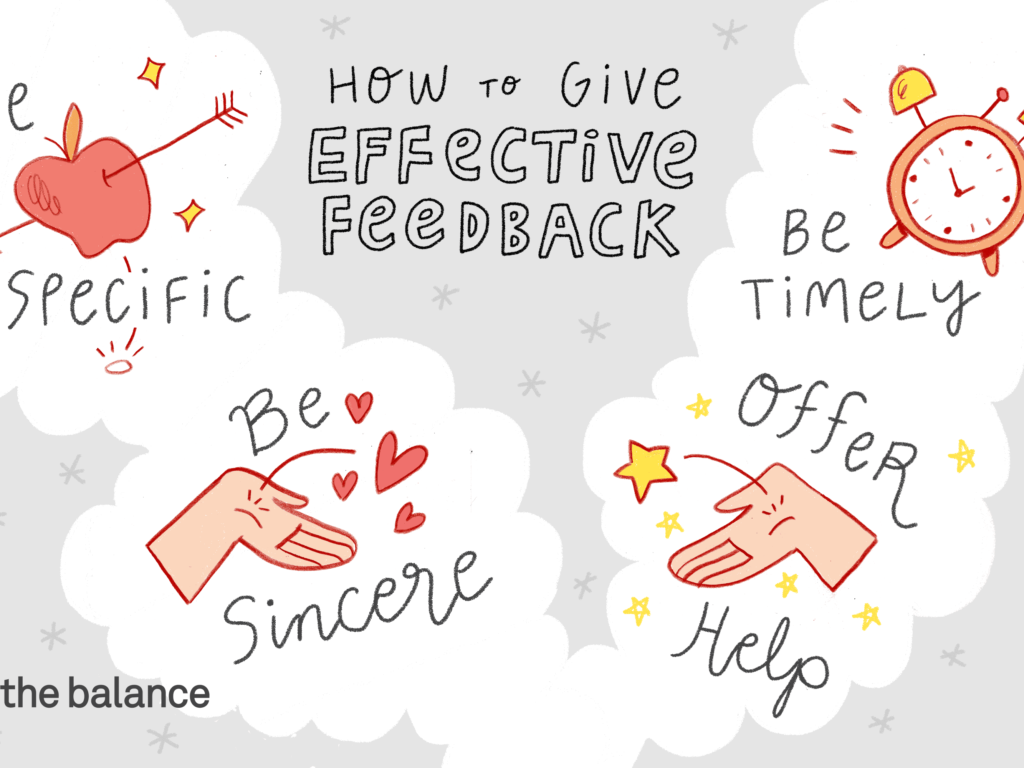Ideally, the term ‘Feedback’ connotes a loop or a circuit where the output of a system is routed back as an input to maintain consistent function. This is very similar to what happens in the human system whereby chemical signals feed back into the loop either as a negative or positive input to maintain steady state, also known as homeostasis, thus enabling us to stay healthy and disease free. This and other examples in nature show us that feedback is essential for the healthy and stable existence of any system. Why then have we demonised feedback and are afraid of giving and receiving it in the workplace?
What I find hard about giving feedback.
This is especially true in an academic or scientific setting. People in the scientific community walk on eggshells afraid to offend or disrespect their peers. I am guilty of this behavior as well! It is harder for me to give feedback than receive it. The hardest part about giving feedback to a fellow researcher is that I believe in their intelligence and expertise. They must be good at what they do to have made it thus far. However, my advisor urges us to ask hard questions and give feedback during our research meetings. This is not an easy task for me, mostly because I am a recent recruit to the team and everyone has different projects. In addition, I come from a culture of strict rules and one seeped in conventional wisdom such as respecting seniority and not questioning authority. Hence, I believe that culture plays a huge role in one’s ability to give feedback because it is not an innate response to some of us, and there is always the worry of a confrontational response.
What I find hard about receiving feedback
Being on the receiving end of feedback has its challenges as well. People sometimes have an inflated sense of self-importance and consider all feedback to be criticisms, making them impervious to suggestions. On the other hand, there are others who welcome all feedback and begin doubting themselves when they get demotivating comments. This is especially the case when you are young and starting out regardless of whether it is in research or in the corporate world. It takes a while to learn that some feedback needs to be taken with a grain of salt. There are other times when feedback is given in a hostile and humiliating manner putting the receiver immediately on the defensive. I have most certainly gone through all the above scenarios, and today I am open to any feedback, because I no longer doubt myself or take comments at face value. Having said that, when I get emotionally attached to a research hypothesis and believe that I am doing the most rigorous experiments to test this hypothesis, it is harder to actively listen to feedback. During these times my reflex action is to defend my choice of experiments without truly understanding that these comments are the result of differences in people’s thinking and that I might benefit from looking at the problem from a different perspective. Hence, I make a conscious effort to actively listen to the context of the feedback, ask questions to clarify, then cogitate on it, and eventually adopt the most relevant input.

Interpersonal skills that help close the circuit with feedback.
Feedback works best when there is a connection, a closed circuit, where the giver and receiver match in emotional intelligence. Most people are so wrapped up in their own bubble, focused on their job and problems, that they don’t always manifest conscious emotional intelligence. Hence, giving and receiving feedback in the workplace has become a dreaded task rather than a mutually beneficial exercise. It is important to remember that feedback delayed is feedback denied and practicing useful interpersonal skills could make this a more productive and rewarding experience. Some of the interpersonal skills that I have tried to practice, over the years, are emotional intelligence and active listening while receiving feedback, and empathy and emotional intelligence while giving feedback. In addition, being able to read nonverbal cues is a strong skill to have because it helps close the circuit and makes the feedback exercise more meaningful.
If I must give feedback, I make sure that it is good feedback and is delivered with empathy. I make notes as I go so that I get my facts right and I ensure that the feedback is necessary and timely and that I am not micromanaging. In addition, I make sure that I give positive reinforcements frequently and not wait for my team to make a mistake to call them out on. This builds a connection making it easier to convey negative feedback. My comments are constructive and include action points and I avoid making blanket statements. Giving feedback to a superior is a different kind of challenge and active listening and note taking helps me get my facts right and make an accurate comment. Moreover, being aware of the superior’s emotional intelligence and non-verbal cues allows me to change the tone of my feedback. For example, I would phrase my comment as a question to further my understanding than make a defensive comment. While receiving feedback from a peer or superior I tend to give them the benefit of the doubt. I use my emotional intelligence to listen actively, look for even a kernel of truth in their comment, welcome criticism as a means of improvement, try not to be defensive, tell them how I feel, and be confident in who I am while acknowledging that I am only human and can make mistakes.

“We all need people who will give us feedback. That’s how we improve.”
Bill Gates, Microsoft


